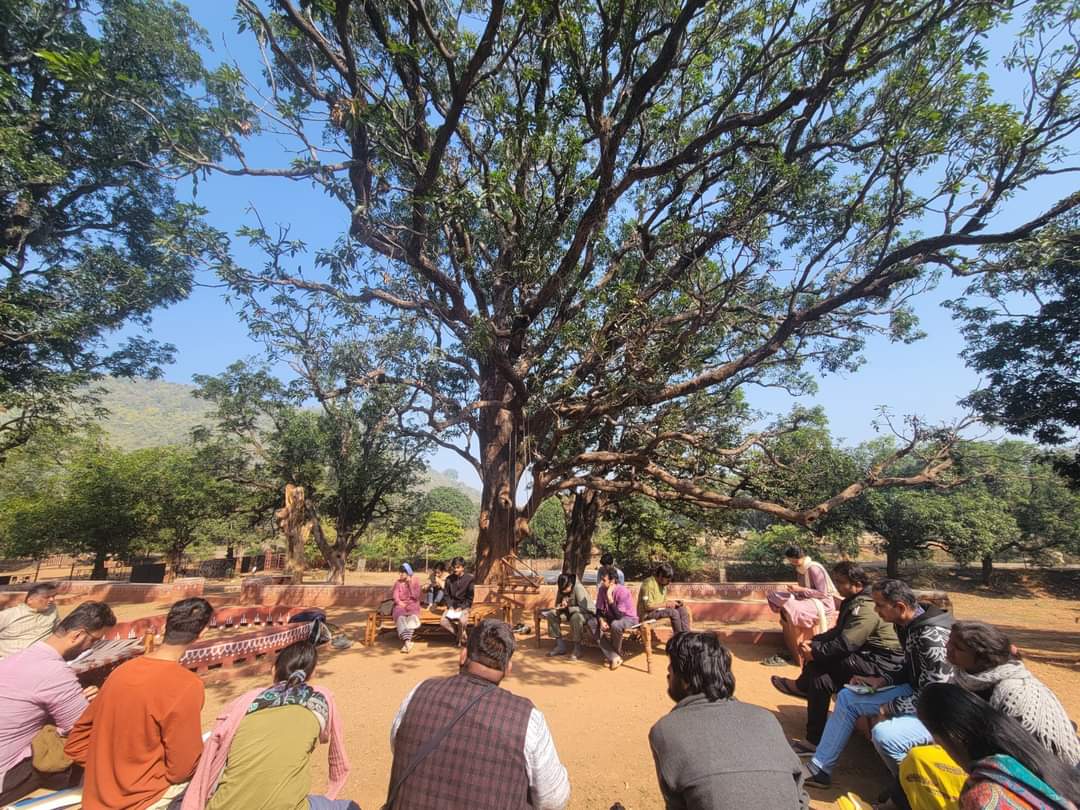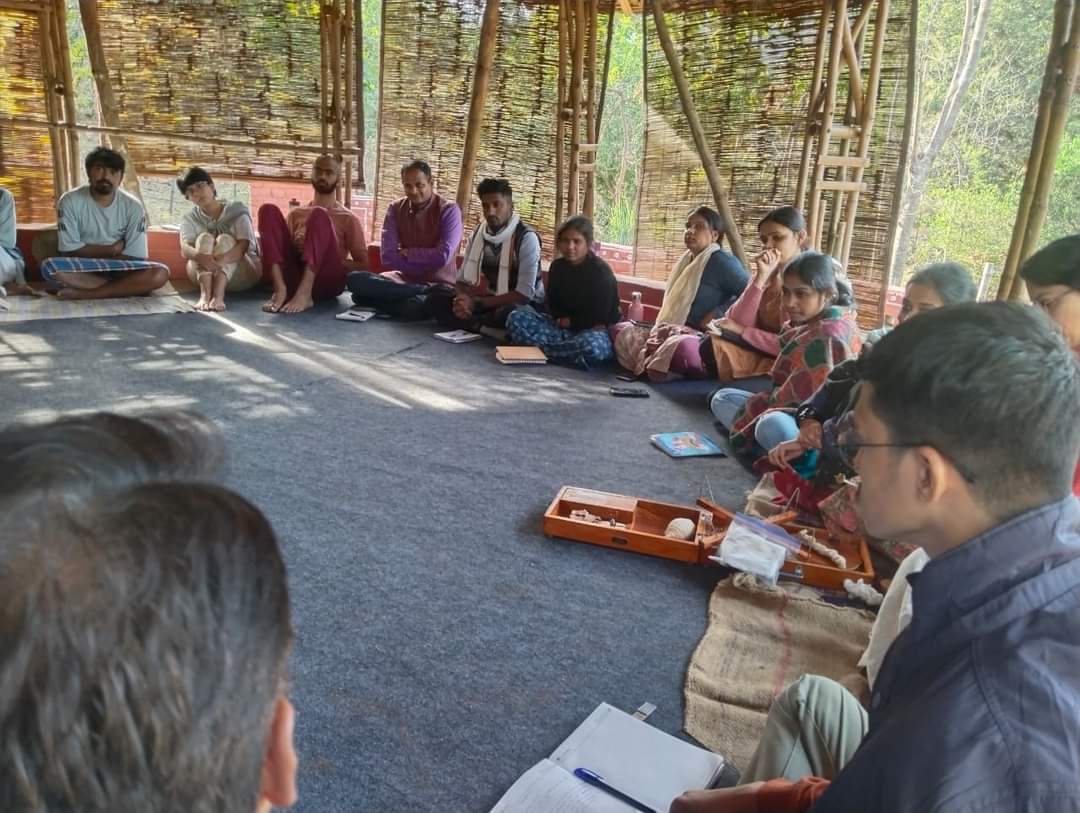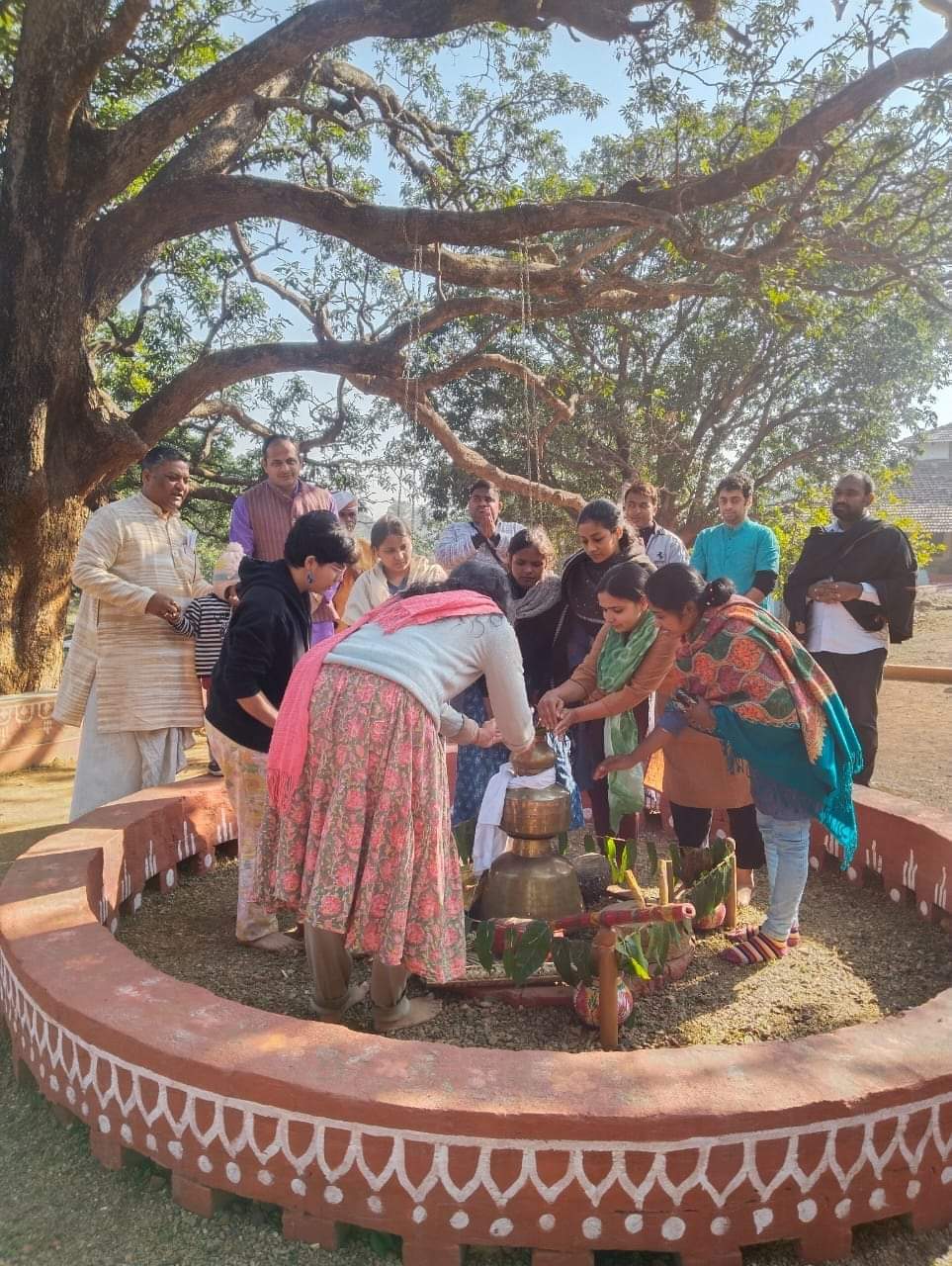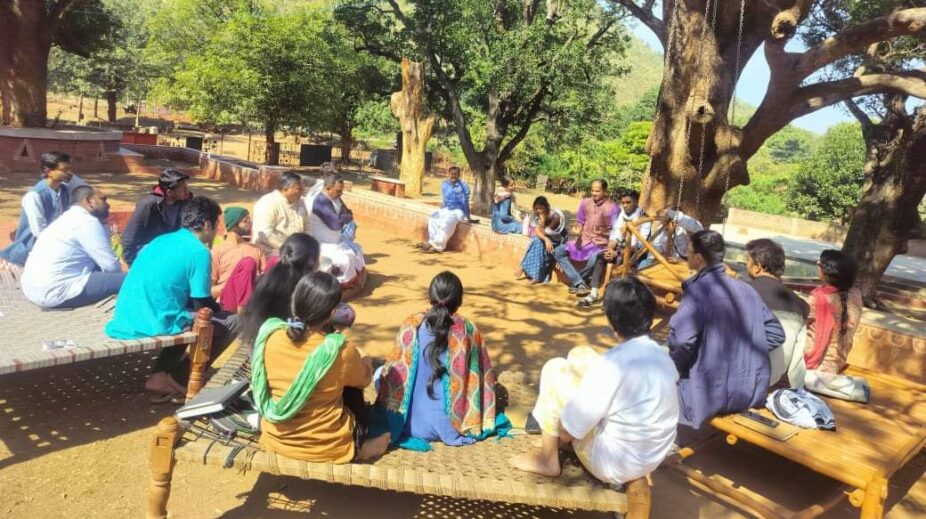Arthavyavastha – An Indic View Of Economics
CEK | 2 April, 2024
The possibility of rebuilding learning in to include Indic traditions beckons at Jeevika Ashram, located in a village called Indrana 30 km from Jabalpur in Madhya Pradesh. The Ashram sits at the base of a hill in the Vindhya Mountains near the Hiran River, surrounded by forests teeming with deers, langoors, jackals and fabled herbs and trees prized in traditional medicine. It was started by Ashish and Ragni Gupta in 2017 with the blessings of the late Shri Ravindra Sharma of Adilabad, who was an artist, craftsman, philosopher, and a guide to many people working on social, cultural, economic and ecological issues across the country.
The Ashram has been hosting Basant Utsav since 2017 when it was founded. In March 2023, it hosted the first Nature and Culture Workshop. In August, it hosted an architecture documentation workshop to study the local traditional architecture of the village. In October, a second edition of the Nature and Culture workshop was held. In November, the Ashram hosted a Symposium on Indian Society and Economics which brought together more than 50 scholars, community workers, artisans and farmers.

Jeevika Ashram is not a registered entity and it isn’t intended to be one in the future. Instead of working institutionally, it wishes to work on the basis of human relations. This has implications on the way we organise our resources as well. Our work is largely supported by contributions from people, not institutions.
We are now offering a course on the Indian Economy titled, Arthvyavastha, to carry forward our learnings and facilitate a conversation on an issue that we think urgently calls for a larger rethinking in our time. Around 25 people from across the country met between 25th and 31st January at the Ashram. Our intention is to not just offer a different perspective in the content of the course, but the form as well.

Arthvyavastha was a weeklong course for young people to look at the discipline of economics and more importantly, our economy, with our own eyes. It aimed at developing a perspective that is rooted in traditions that emphasise our deep harmony with the natural world and the values of love, non-violence, peace and justice. We discussed about the narratives that shaped our very thoughts of the worldview that is alien to our land, the earth, and our cultures. The attempt was to see what our local traditions of knowledge can offer us in developing a sensible approach towards economics.
We had participants from across the country and from diverse academic backgrounds. The course was conducted in the tradition of daan and patronage as in Indian tradition, Vidya is offered as daan. Ten patrons shared their wealth to make this course possible, among them Centre for Embodied Knowledge (CEK).
Knowledges that have served society and nature have been patronised by people themselves – independently of formal institutions. Society comes together to support the production and sharing of knowledge. In this tradition of learning, the learner does not pay to learn. The willingness to learn is the only criteria. Knowledge comes as a gift.

In the Indian tradition of learning, vidya is not considered a commodity for commerce. Nor is it considered the wealth of the individual who carries it. Vidya has been for the common good, and it has been provisioned collectively by society. The economic mechanism for facilitating the production of knowledge in our society has been the tradition of daan.
If this interests you, let us have a conversation. Please get in touch with Aryaman at 9958216334 or aryamanmails@gmail.com.

